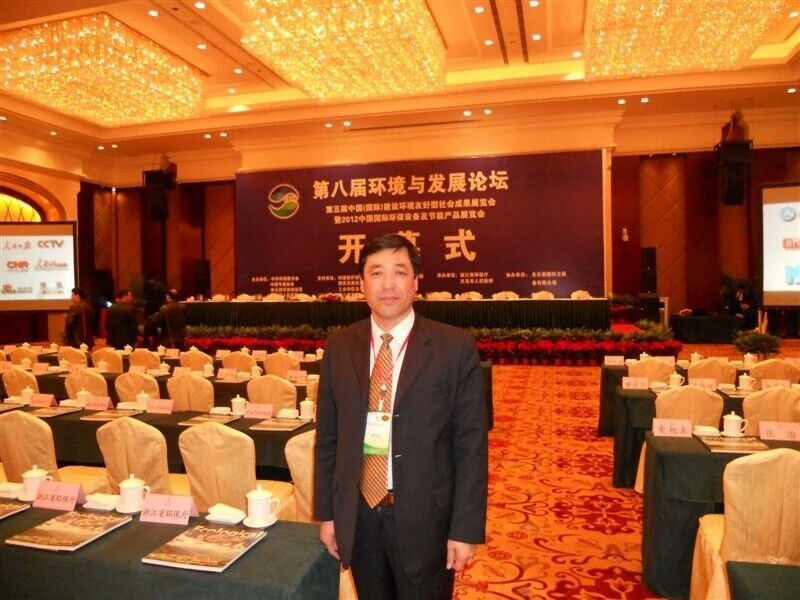Text
正文
The Governments of Brunei Darussalam, the Kingdom of Cambodia, the Republic of Indonesia, the Lao People's Democratic Republic ("Lao PDR"), Malaysia, the Union of Myanmar, the Republic of the Philippines, the Republic of Singapore, the Kingdom of Thailand and the Socialist Republic of Viet Nam, Member States of the Association of Southeast Asian Nations (collectively, "ASEAN" or "ASEAN Member States", or individually, "ASEAN Member State"), and the People's Republic of China ("China");
RECALLING the Framework Agreement on Comprehensive Economic Co-operation ("the Framework Agreement") between ASEAN and China (collectively, "the Parties", or individually referring to an ASEAN Member State or to China as a "Party") signed by the Heads of Government/State of ASEAN Member States and China in Phnom Penh, Cambodia on the 4th day of November 2002 and the Protocol to Amend the Framework Agreement on Comprehensive Economic Co-operation on the Early Harvest Programme signed by the Economic Ministers of the Parties in Bali, Indonesia on the 6th day of October 2003;
RECALLING further Articles 2(a), 3(1) and 8(1) of the Framework Agreement, which reflect the Parties' commitment to establish the ASEAN-China Free Trade Area (ACFTA) covering trade in goods by 2010 for ASEAN 6 and China and by 2015 for the newer ASEAN Member States;
REAFFIRMING the Parties' commitment to establish the ASEAN-China Free Trade Area within the specified timeframes, while allowing flexibility to the Parties to address their sensitive areas as provided in the Framework Agreement,
Have agreed as follows:
RECALLING the Framework Agreement on Comprehensive Economic Co-operation ("the Framework Agreement") between ASEAN and China (collectively, "the Parties", or individually referring to an ASEAN Member State or to China as a "Party") signed by the Heads of Government/State of ASEAN Member States and China in Phnom Penh, Cambodia on the 4th day of November 2002 and the Protocol to Amend the Framework Agreement on Comprehensive Economic Co-operation on the Early Harvest Programme signed by the Economic Ministers of the Parties in Bali, Indonesia on the 6th day of October 2003;
RECALLING further Articles 2(a), 3(1) and 8(1) of the Framework Agreement, which reflect the Parties' commitment to establish the ASEAN-China Free Trade Area (ACFTA) covering trade in goods by 2010 for ASEAN 6 and China and by 2015 for the newer ASEAN Member States;
REAFFIRMING the Parties' commitment to establish the ASEAN-China Free Trade Area within the specified timeframes, while allowing flexibility to the Parties to address their sensitive areas as provided in the Framework Agreement,
Have agreed as follows:
中华人民共和国政府(以下简称“中国”)与文莱达鲁萨兰国,柬埔寨王国,印度尼西亚共和国,老挝人民民主共和国,马来西亚,缅甸联邦,菲律宾共和国,新加坡共和国,泰王国和越南社会主义共和国等东南亚国家联盟成员国政府(以下将其整体简称为“东盟”或“东盟各成员国”,单独提及一国时简称“东盟成员国”);
忆及2002年11月4日在柬埔寨金边由中国和东盟领导人签署的《中国与东盟(以下将其整体简称为“各缔约方”,单独提及东盟一成员国或中国时简称为“一缔约方”)全面经济合作框架协议》(以下简称《框架协议》)以及2003年10月6日在印度尼西亚巴厘由各缔约方经济部长签署的《关于修改<中国-东盟全面经济合作框架协议>的议定书》;
再次忆及《框架协议》的第二条(1),第三条(1)和第8条(1)款反映出的各缔约方的承诺,即对于中国和东盟六国,将在2010年建成涵盖货物贸易的中国-东盟自贸区,对于东盟新成员国,将在2015年建成自贸区;
重申各缔约方在规定的时间框架内建立中国-东盟自贸区的承诺,同时允许各缔约方按照《框架协议》规定,享有解决敏感领域问题的灵活性。达成协议如下:
ARTICLE 1 Definitions
For the purposes of this Agreement, the following definitions shall apply unless the context otherwise requires:
(a) "WTO" means the World Trade Organization;
(b) "the GATT 1994" means the General Agreement on Tariffs and Trade 1994, including Annex I (Notes and Supplementary Provisions);
(c) "ASEAN 6" refers to Brunei Darussalam, Indonesia, Malaysia, the Philippines, Singapore and Thailand;
(d) "newer ASEAN Member States" refers to Cambodia, Lao PDR, Myanmar and Viet Nam;
(e) "applied MFN tariff rates" shall include in-quota rates, and shall:
(i) in the case of ASEAN Member States (which are WTO members as of 1 July 2003) and China, refer to their respective applied rates as of 1 July 2003; and
(ii) in the case of ASEAN Member States (which are non-WTO members as of 1 July 2003), refer to the rates as applied to China as of 1 July 2003;
(f) "non-tariff measures" shall include non-tariff barriers;
(g) "AEM" means ASEAN Economic Ministers;
(h) "MOFCOM" means Ministry of Commerce of China;
(i) "SEOM" means ASEAN Senior Economic Officials Meeting.
For the purposes of this Agreement, the following definitions shall apply unless the context otherwise requires:
(a) "WTO" means the World Trade Organization;
(b) "the GATT 1994" means the General Agreement on Tariffs and Trade 1994, including Annex I (Notes and Supplementary Provisions);
(c) "ASEAN 6" refers to Brunei Darussalam, Indonesia, Malaysia, the Philippines, Singapore and Thailand;
(d) "newer ASEAN Member States" refers to Cambodia, Lao PDR, Myanmar and Viet Nam;
(e) "applied MFN tariff rates" shall include in-quota rates, and shall:
(i) in the case of ASEAN Member States (which are WTO members as of 1 July 2003) and China, refer to their respective applied rates as of 1 July 2003; and
(ii) in the case of ASEAN Member States (which are non-WTO members as of 1 July 2003), refer to the rates as applied to China as of 1 July 2003;
(f) "non-tariff measures" shall include non-tariff barriers;
(g) "AEM" means ASEAN Economic Ministers;
(h) "MOFCOM" means Ministry of Commerce of China;
(i) "SEOM" means ASEAN Senior Economic Officials Meeting.
就本协议而言,将适用下列定义,除非文中另有规定:
(一)“WTO”指世界贸易组织;
(二)“the GATT1994”指《1994年关税与贸易总协定》,包括附件一(注释和补充条款);
(三)“东盟六国”指文莱、印度尼西亚、马来西亚、菲律宾、新加坡和泰国;
(四)“东盟新成员国”指柬埔寨、老挝人民民主共和国、缅甸和越南;
(五)“实施最惠国税率”应包括配额内税率,且1.对东盟成员国(2003年7月1日时为世界贸易组织成员)和中国,指其各自于2003年7月1日的实施税率;以及
2.对东盟成员国(2003年7月1日时为非世界贸易组织成员),指其在2003年7月1日对中国产品实施的税率;
(六)“非关税措施”应包括非关税壁垒;
(七)“AEM”指东盟经济部长;
(八)“MOFCOM”指中华人民共和国商务部;
(九)“SEOM”指东盟经济高官会。
ARTICLE 2 National Treatment on Internal Taxation and Regulation
Each Party shall accord national treatment to the products of all the other Parties covered by this Agreement and the Framework Agreement in accordance with Article III of the GATT 1994. To this end, the provisions of Article III of the GATT 1994 shall, mutatis mutandis, be incorporated into and form an integral part of this Agreement.
Each Party shall accord national treatment to the products of all the other Parties covered by this Agreement and the Framework Agreement in accordance with Article III of the GATT 1994. To this end, the provisions of Article III of the GATT 1994 shall, mutatis mutandis, be incorporated into and form an integral part of this Agreement.
ARTICLE 3 Tariff Reduction and Elimination
1.The tariff reduction or elimination programme of the Parties shall require the applied MFN tariff rates on listed tariff lines to be gradually reduced and where applicable, eliminated, in accordance with this Article.
2.The tariff lines which are subject to the tariff reduction or elimination programme ubder this Agreement shall include all tariff lines not covered by the Early Harvest Programme under Article 6 of the Framework Agreement, and such tariff lines shall be categorised for tariff reduction and elimination as follows:
(a) Normal Track: Tariff lines placed in the Normal Track by each Party on its own accord shall have their respective applied MFN tariff rates gradually reduced and eliminated in accordance with the modalities set out in Annex 1 of this Agreement with the objective of achieving the targets prescribed in the thresholds therein.
(b) Sensitive Track: Tariff lines placed in the Sensitive Track by each Party on its own accord shall have their respective applied MFN tariff rates reduced or eliminated in accordance with the modalities set out in Annex 2 of this Agreement.
3.Subject to Annex 1 and Annex 2 of this Agreement, all commitments undertaken by each Party under this Article shall be applied to all the other Parties.
1.The tariff reduction or elimination programme of the Parties shall require the applied MFN tariff rates on listed tariff lines to be gradually reduced and where applicable, eliminated, in accordance with this Article.
2.The tariff lines which are subject to the tariff reduction or elimination programme ubder this Agreement shall include all tariff lines not covered by the Early Harvest Programme under Article 6 of the Framework Agreement, and such tariff lines shall be categorised for tariff reduction and elimination as follows:
(a) Normal Track: Tariff lines placed in the Normal Track by each Party on its own accord shall have their respective applied MFN tariff rates gradually reduced and eliminated in accordance with the modalities set out in Annex 1 of this Agreement with the objective of achieving the targets prescribed in the thresholds therein.
(b) Sensitive Track: Tariff lines placed in the Sensitive Track by each Party on its own accord shall have their respective applied MFN tariff rates reduced or eliminated in accordance with the modalities set out in Annex 2 of this Agreement.
3.Subject to Annex 1 and Annex 2 of this Agreement, all commitments undertaken by each Party under this Article shall be applied to all the other Parties.
一、各缔约方的关税削减或取消计划应要求逐步削减被列明税目的实施最惠国税率,并在适当时依照本条予以取消。
二、依照本协议纳入关税削减或取消计划的税目应包括所有未被《框架协议》第六条所列的早期收获计划涵盖的税目,这些税目应按如下规定进行关税削减和取消:
(一)正常类:一缔约方自愿纳入正常类的税目应依照本协议附件1中列明的模式逐步削减和取消各自的实施最惠国税率,并应实现模式中的降税门槛所规定的目标。
(二)敏感类:一缔约方自愿纳入敏感类的税目应依照本协议附件2中的模式削减或取消各自的实施最惠国税率。
三、根据本协议附件1和附件2,各缔约方按照本条履行的承诺应适用于其它所有缔约方。
ARTICLE 6 Modification of Concessions
1.Any Party to this Agreement may, by negotiation and agreement with any Party to which it has made a concession under this Agreement, modify or withdraw such concession made under this Agreement.
2. In such negotiations and agreement, which may include provision for compensatory adjustment with respect to other products, the Parties concerned shall maintain a general level of reciprocal and mutually advantageous concessions not less favourable to trade than that provided for in this Agreement prior to such negotiations and agreement.
1.Any Party to this Agreement may, by negotiation and agreement with any Party to which it has made a concession under this Agreement, modify or withdraw such concession made under this Agreement.
2. In such negotiations and agreement, which may include provision for compensatory adjustment with respect to other products, the Parties concerned shall maintain a general level of reciprocal and mutually advantageous concessions not less favourable to trade than that provided for in this Agreement prior to such negotiations and agreement.
ARTICLE 7 WTO Disciplines
1.Subject to the provisions of this Agreement and any future agreements as may be agreed pursuant to reviews of this Agreement by the Parties under Article 17 of this Agreement, the Parties[1] hereby agree and reaffirm their commitments to abide by the provisions of the WTO disciplines on, among others, non-tariff measures, technical barriers to trade, sanitary and phytosanitary measures, subsidies and countervailing measures, anti-dumping measures and intellectual property rights.
2.The provisions of the WTO Multilateral Agreements on Trade in Goods, which are not specifically mentioned in or modified by this Agreement, shall apply, mutatis mutandis, to this Agreement unless the context otherwise requires.
1.Subject to the provisions of this Agreement and any future agreements as may be agreed pursuant to reviews of this Agreement by the Parties under Article 17 of this Agreement, the Parties[1] hereby agree and reaffirm their commitments to abide by the provisions of the WTO disciplines on, among others, non-tariff measures, technical barriers to trade, sanitary and phytosanitary measures, subsidies and countervailing measures, anti-dumping measures and intellectual property rights.
2.The provisions of the WTO Multilateral Agreements on Trade in Goods, which are not specifically mentioned in or modified by this Agreement, shall apply, mutatis mutandis, to this Agreement unless the context otherwise requires.
ARTICLE 8 Quantitative Restrictions and Non-Tariff Barriers
1. Each Party undertakes not to maintain any quantitative restrictions at any time unless otherwise permitted under the WTO disciplines.[2]
2. The Parties shall identify non-tariff barriers (other than quantitative restrictions) for elimination as soon as possible after the entry into force of this Agreement. The time frame for elimination of these non-tariff barriers shall be mutually agreed upon by all Parties.
3. The Parties shall make information on their respective quantitative restrictions available and accessible upon implementation of this Agreement.
1. Each Party undertakes not to maintain any quantitative restrictions at any time unless otherwise permitted under the WTO disciplines.[2]
2. The Parties shall identify non-tariff barriers (other than quantitative restrictions) for elimination as soon as possible after the entry into force of this Agreement. The time frame for elimination of these non-tariff barriers shall be mutually agreed upon by all Parties.
3. The Parties shall make information on their respective quantitative restrictions available and accessible upon implementation of this Agreement.
ARTICLE 9 Safeguard Measures
1.Each Party, which is a WTO member, retains its rights and obligations under Article XIX of the GATT 1994 and the WTO Agreement on Safeguards.
2.With regard to ACFTA safeguard measures, a Party shall have the right to initiate such a measure on a product within the transition period for that product. The transition period for a product shall begin from the date of entry into force of this Agreement and end five years from the date of completion of tariff elimination/reduction for that product.
3.A Party shall be free to take ACFTA safeguard measures if as an effect of the obligations incurred by that Party, including tariff concessions under the Early Harvest Programme of the Framework Agreement or this Agreement, or, if as a result of unforeseen developments and of the effects of the obligations incurred by that Party, including tariff concessions under the Early Harvest Programme of the Framework Agreement or this Agreement, imports of any particular product from the other Parties increase in such quantities, absolute or relative to domestic production, and under such conditions so as to cause or threaten to cause serious injury to the domestic industry of the importing Party that produces like or directly competitive products.
4.If an ACFTA safeguard measure is taken, a Party taking such a measure may increase the tariff rate applicable to the product concerned to the WTO MFN tariff rate applied to such product at the time when the measure is taken.
5.Any ACFTA safeguard measure may be maintained for an initial period of up to 3 years and may be extended for a period not exceeding 1 year. Notwithstanding the duration of an ACFTA safeguard measure on a product, such measure shall terminate at the end of the transition period for that product.
6. In applying ACFTA safeguard measures, the Parties shall adopt the rules for the application of safeguard measures as provided under the WTO Agreement on Safeguards, with the exception of the quantitative restriction measures set out in Article 5, and Articles 9, 13 and 14 of the WTO Agreement on Safeguards. As such, all other provisions of the WTO Agreement on Safeguards shall, mutatis mutandis, be incorporated into and form an integral part of this Agreement.
7.An ACFTA safeguard measure shall not be applied against a product originating in a Party, so long as its share of imports of the product concerned in the importing Party does not exceed 3% of the total imports from the Parties.
8. In seeking compensation under Article 8 of the WTO Agreement on Safeguards for an ACFTA safeguard measure, the Parties shall seek the good offices of the body referred to in paragraph 12 to determine the substantially equivalent level of concessions prior to any suspension of equivalent concessions. Any proceedings arising from such good offices shall be completed within 90 days from the date on which the ACFTA safeguard measure was applied.
9.On a Party's termination of an ACFTA safeguard measure on a product, the tariff rate for that product shall be the rate that, according to that Party's tariff reduction and elimination schedule, as provided in Annex 1 and Annex 2 of this Agreement, would have been in effect commencing on 1 January of the year in which the safeguard measure is terminated.
10.All official communications and documentations exchanged among the Parties and to the body referred to in paragraph 12 relating to any ACFTA safeguard measures shall be in writing and shall be in the English language.
11.When applying ACFTA safeguard measures, a Party shall not have simultaneous recourse to the WTO safeguard measures referred to in paragraph 1.
12.For the purpose of this Article, any reference to "Council for Trade in Goods" or the "Committee on Safeguards" in the incorporated provisions of the WTO Agreement on Safeguards shall, pending the establishment of a permanent body under paragraph 1 of Article 16, refer to the AEM-MOFCOM, or the SEOM-MOFCOM, as appropriate, which shall be replaced by the permanent body once it is established.
1.Each Party, which is a WTO member, retains its rights and obligations under Article XIX of the GATT 1994 and the WTO Agreement on Safeguards.
2.With regard to ACFTA safeguard measures, a Party shall have the right to initiate such a measure on a product within the transition period for that product. The transition period for a product shall begin from the date of entry into force of this Agreement and end five years from the date of completion of tariff elimination/reduction for that product.
3.A Party shall be free to take ACFTA safeguard measures if as an effect of the obligations incurred by that Party, including tariff concessions under the Early Harvest Programme of the Framework Agreement or this Agreement, or, if as a result of unforeseen developments and of the effects of the obligations incurred by that Party, including tariff concessions under the Early Harvest Programme of the Framework Agreement or this Agreement, imports of any particular product from the other Parties increase in such quantities, absolute or relative to domestic production, and under such conditions so as to cause or threaten to cause serious injury to the domestic industry of the importing Party that produces like or directly competitive products.
4.If an ACFTA safeguard measure is taken, a Party taking such a measure may increase the tariff rate applicable to the product concerned to the WTO MFN tariff rate applied to such product at the time when the measure is taken.
5.Any ACFTA safeguard measure may be maintained for an initial period of up to 3 years and may be extended for a period not exceeding 1 year. Notwithstanding the duration of an ACFTA safeguard measure on a product, such measure shall terminate at the end of the transition period for that product.
6. In applying ACFTA safeguard measures, the Parties shall adopt the rules for the application of safeguard measures as provided under the WTO Agreement on Safeguards, with the exception of the quantitative restriction measures set out in Article 5, and Articles 9, 13 and 14 of the WTO Agreement on Safeguards. As such, all other provisions of the WTO Agreement on Safeguards shall, mutatis mutandis, be incorporated into and form an integral part of this Agreement.
7.An ACFTA safeguard measure shall not be applied against a product originating in a Party, so long as its share of imports of the product concerned in the importing Party does not exceed 3% of the total imports from the Parties.
8. In seeking compensation under Article 8 of the WTO Agreement on Safeguards for an ACFTA safeguard measure, the Parties shall seek the good offices of the body referred to in paragraph 12 to determine the substantially equivalent level of concessions prior to any suspension of equivalent concessions. Any proceedings arising from such good offices shall be completed within 90 days from the date on which the ACFTA safeguard measure was applied.
9.On a Party's termination of an ACFTA safeguard measure on a product, the tariff rate for that product shall be the rate that, according to that Party's tariff reduction and elimination schedule, as provided in Annex 1 and Annex 2 of this Agreement, would have been in effect commencing on 1 January of the year in which the safeguard measure is terminated.
10.All official communications and documentations exchanged among the Parties and to the body referred to in paragraph 12 relating to any ACFTA safeguard measures shall be in writing and shall be in the English language.
11.When applying ACFTA safeguard measures, a Party shall not have simultaneous recourse to the WTO safeguard measures referred to in paragraph 1.
12.For the purpose of this Article, any reference to "Council for Trade in Goods" or the "Committee on Safeguards" in the incorporated provisions of the WTO Agreement on Safeguards shall, pending the establishment of a permanent body under paragraph 1 of Article 16, refer to the AEM-MOFCOM, or the SEOM-MOFCOM, as appropriate, which shall be replaced by the permanent body once it is established.
一、每一位WTO成员的缔约方,保留其根据《1994年关税与贸易总协定》第十九条及《WTO保障措施协定》所享有的权利及义务。
二、关于中国-东盟自贸区保障措施,一缔约方有权在某一产品的过渡期内针对该产品启动保障措施。上述过渡期始于本协议生效之日,终止于该产品完成关税减让或取消的五年之后。
三、如一缔约方因履行其依据本协议或《框架协议》早期收获计划所承担关税减让的义务,或者,如因不可预见的情况和一缔约方因履行其依据本协议或《框架协议》早期收获计划所承担的义务,导致其从其他缔约方进口的任何特定产品的数量有绝对的或相对于其国内产量的增加,且此种情况已对进口方生产类似或直接竞争产品的国内产业造成严重损害或严重损害威胁,则该缔约方有权采取中国-东盟自贸区保障措施。
四、一缔约方采取中国-东盟自贸区保障措施后,可将所涉产品的适用税率提高至保障措施采取时适用于该产品的WTO最惠国税率。
五、中国-东盟自贸区保障措施的最初实施时间不应超过三年,可最多延长一年。不论对某一产品的中国-东盟自贸区保障措施实施期限如何,该保障措施应于该产品过渡期届满之日终止。
六、在实施中国-东盟自贸区保障措施时,各缔约方应适用WTO保障措施协定中关于实施保障措施的规则,但《WTO保障措施协定》第五条所列的数量限制措施及第九、十三、十四条不适用。《WTO保障措施协定》的所有其它条款应在必要修正后纳入本协议,并作为本协议的组成部分。
七、对于来自一缔约方的产品,只要其在进口成员中所涉产品进口中的份额不超过从各缔约方进口总量的3%,即不得对该产品实施中国-东盟自贸区保障措施。
八、在依据《WTO保障措施协定》第八条寻求补偿时,各缔约方应寻求第十二款中提及的机构的斡旋,以在中止任何相等的减让义务前确定实质相等的减让水平。所有与此斡旋有关的程序应在中国-东盟自贸区保障措施实施之日起90天内结束。
九、当一缔约方终止针对某一产品实施的中国-东盟自贸区保障措施时,该产品的税率应为根据本协议附件1及附件2所规定的关税减让表在保障措施终止之年的1月1日本应开始实行的税率。
十、各缔约方之间及送达第十二款中提及的机构的所有与中国-东盟自贸区保障措施相关的官方信函和文件应采用书面形式,并使用英文。
十一、当一缔约方实施中国-东盟自贸区保障措施时,不得同时依据第一款的规定诉诸WTO保障措施。
十二、为实现本条之目的,在根据第十六条第一款设立常设机构之前,所有列入本协议的WTO保障措施协定条款中提及的“货物贸易理事会”或“保障措施委员会”均应指中国-东盟经贸部长会议或中国-东盟经济高官会,常设机构在设立后应替代中国-东盟经贸部长会议和中国-东盟经济高官会。
ARTICLE 10 Acceleration of Commitments
Nothing in this Agreement shall preclude the Parties from negotiating and entering into arrangements to accelerate the implementation of commitments made under this Agreement, provided that such arrangements are mutually agreed to and implemented by all the Parties.
Nothing in this Agreement shall preclude the Parties from negotiating and entering into arrangements to accelerate the implementation of commitments made under this Agreement, provided that such arrangements are mutually agreed to and implemented by all the Parties.
ARTICLE 11 Measures to Safeguard the Balance of Payments
Where a Party is in serious balance of payments and external financial difficulties or threat thereof, it may, in accordance with the GATT 1994 and the Understanding on Balance-of-Payments Provisions of the GATT 1994, adopt restrictive import measures.
Where a Party is in serious balance of payments and external financial difficulties or threat thereof, it may, in accordance with the GATT 1994 and the Understanding on Balance-of-Payments Provisions of the GATT 1994, adopt restrictive import measures.
ARTICLE 12 General Exceptions
Subject to the requirement that such measures are not applied in a manner which would constitute a means of arbitrary or unjustifiable discrimination between the Parties where the same conditions prevail, or a disguised restriction on international trade, nothing in this Agreement shall be construed to prevent the adoption or enforcement by a Party of measures:
(a) necessary to protect public morals;
(b) necessary to protect human, animal or plant life or health;
(c) relating to the importations or exportations of gold or silver;
(d) necessary to secure compliance with laws or regulations which are not inconsistent with the provisions of this Agreement, including those relating to customs enforcement, the enforcement of monopolies operated under paragraph 4 of Article II and Article XVII of the GATT 1994, the protection of patents, trade marks and copyrights, and the prevention of deceptive practices;
(e) relating to the products of prison labour;
(f) imposed for the protection of national treasures of artistic, historic or archaeological value;
(g) relating to the conservation of exhaustible natural resources if such measures are made effective in conjunction with restrictions on domestic production or consumption;
(h) undertaken in pursuance of obligations under any intergovernmental commodity agreement which conforms to criteria submitted to the WTO and not disapproved by it or which is itself so submitted and not so disapproved;
(i) involving restrictions on exports of domestic materials necessary to ensure essential quantities of such materials to a domestic processing industry during periods when the domestic price of such materials is held below the world price as part of a governmental stabilization plan; Provided that such restrictions shall not operate to increase the exports of or the protection afforded to such domestic industry, and shall not depart from the provisions of this Agreement relating to non-discrimination;
(j) essential to the acquisition or distribution of products in general or local short supply; Provided that any such measures shall be consistent with the principle that all Parties are entitled to an equitable share of the international supply of such products, and that any such measures, which are inconsistent with the other provisions of this Agreement shall be discontinued as soon as the conditions giving rise to them have ceased to exist.
Subject to the requirement that such measures are not applied in a manner which would constitute a means of arbitrary or unjustifiable discrimination between the Parties where the same conditions prevail, or a disguised restriction on international trade, nothing in this Agreement shall be construed to prevent the adoption or enforcement by a Party of measures:
(a) necessary to protect public morals;
(b) necessary to protect human, animal or plant life or health;
(c) relating to the importations or exportations of gold or silver;
(d) necessary to secure compliance with laws or regulations which are not inconsistent with the provisions of this Agreement, including those relating to customs enforcement, the enforcement of monopolies operated under paragraph 4 of Article II and Article XVII of the GATT 1994, the protection of patents, trade marks and copyrights, and the prevention of deceptive practices;
(e) relating to the products of prison labour;
(f) imposed for the protection of national treasures of artistic, historic or archaeological value;
(g) relating to the conservation of exhaustible natural resources if such measures are made effective in conjunction with restrictions on domestic production or consumption;
(h) undertaken in pursuance of obligations under any intergovernmental commodity agreement which conforms to criteria submitted to the WTO and not disapproved by it or which is itself so submitted and not so disapproved;
(i) involving restrictions on exports of domestic materials necessary to ensure essential quantities of such materials to a domestic processing industry during periods when the domestic price of such materials is held below the world price as part of a governmental stabilization plan; Provided that such restrictions shall not operate to increase the exports of or the protection afforded to such domestic industry, and shall not depart from the provisions of this Agreement relating to non-discrimination;
(j) essential to the acquisition or distribution of products in general or local short supply; Provided that any such measures shall be consistent with the principle that all Parties are entitled to an equitable share of the international supply of such products, and that any such measures, which are inconsistent with the other provisions of this Agreement shall be discontinued as soon as the conditions giving rise to them have ceased to exist.
在遵守关于此类措施的实施不在情形类似的有关缔约方之间构成任意或不合理歧视的手段或构成对国际贸易的变相限制的要求前提下,本协议的任何规定不得解释为阻止一缔约方采取或实施以下措施:
(一)为保护公共道德所必需的措施;
(二)为保护人类、动物或植物的生命或健康所必需的措施;
(三)与黄金或白银进出口有关的措施;
(四)为保证与本协议的规定不相抵触的法律或法规得到遵守所必需的措施,包括与海关执法、根据《1994年关税与贸易总协定》第二条第四款和第十七条实行的有关垄断、宝库专利权、商标和版权以及防止欺诈行为有关的措施;
(五)与监狱囚犯产品有关的措施;
(六)为保护具有艺术、历史或考古价值的国宝所采取的措施;
(七)与保护可用尽的自然资源有关的措施,如此类措施与限制国内生产或消费一同实施;
(八)为履行任何政府间商品协定项下义务而实施的措施,该协定符合WTO其WTO不持异议的标准,或该协定本身提交各缔约方且各缔约方不持异议;
(九)在作为政府稳定计划的一部分将国内原料价格压至低于国际价格水平的时期内,为保证此类原料给予国内加工产业所必需的数量而涉及限制此种原料出口的措施;但是此类限制不得用于增加该国内产业的出口或增加对其提供的保护,也不得偏离本协议有关非歧视的规定;
(十)在普遍或局部供应短缺的情况下,为获取或分配产品所必需的措施;但是任何此类措施应符合以下原则:即本协议的各缔约方在此类产品的国际供应中有权获得公平的份额,且任何此类与本协议其他规定不一致的措施,应在导致其实施的条件不复存在时即行停止。
ARTICLE 13 Security Exceptions
Nothing in this Agreement shall be construed:
(a) to require any Party to furnish any information the disclosure of which it considers contrary to its essential security interests;
(b) to prevent any Party from taking any action which it considers necessary for the protection of its essential security interests, including but not limited to:
(i) action relating to fissionable materials or the materials from which they are derived;
(ii) action relating to the traffic in arms, ammunition and implements of war and to such traffic in other goods and materials as is carried on directly or indirectly for the purpose of supplying a military establishment;
(iii) action taken so as to protect critical communications infrastructure from deliberate attempts intended to disable or degrade such infrastructure;
(iv) action taken in time of war or other emergency in domestic or international relations; or
(c) to prevent any Party from taking any action in pursuance of its obligations under the United Nations Charter for the maintenance of international peace and security.
Nothing in this Agreement shall be construed:
(a) to require any Party to furnish any information the disclosure of which it considers contrary to its essential security interests;
(b) to prevent any Party from taking any action which it considers necessary for the protection of its essential security interests, including but not limited to:
(i) action relating to fissionable materials or the materials from which they are derived;
(ii) action relating to the traffic in arms, ammunition and implements of war and to such traffic in other goods and materials as is carried on directly or indirectly for the purpose of supplying a military establishment;
(iii) action taken so as to protect critical communications infrastructure from deliberate attempts intended to disable or degrade such infrastructure;
(iv) action taken in time of war or other emergency in domestic or international relations; or
(c) to prevent any Party from taking any action in pursuance of its obligations under the United Nations Charter for the maintenance of international peace and security.
本协议的任何规定不得解释为:
(一)要求任何一缔约方提供其认为如披露则会违背其基本安全利益的任何信息;
(二)阻止任何一缔约方采取其认为对保护其基本国家安全利益所必需的任何行动,包括但不仅限于如下行动:
1.与裂变和聚变物质或衍生这些物质的物质有关的行动;
2.与武器、弹药和作战物资的贸易有关的行动,及与此类贸易所运输的直接或间接供应军事机关的其他货物或物资有关的行动;
3.为保护重要通讯基础设施免遭使该基础设施失效或功能削弱的蓄意图谋所采取的措施;或
4.在战时或国内、国际关系中的其他紧急情况下采取的行动。
(三)阻止任何缔约方为履行其在《联合国宪章》项下的维护国际和平与安全的义务而采取的任何行动。
ARTICLE 14 Recognition of China's Market Economy Status
Each of the ten ASEAN Member States agrees to recognise China as a full market economy and shall not apply, from the date of the signature of this Agreement, Sections 15 and 16 of the Protocol of Accession of the People's Republic of China to the WTO and Paragraph 242 of the Report of the Working Party on the Accession of China to WTO in relation to the trade between China and each of the ten ASEAN Member States.
Each of the ten ASEAN Member States agrees to recognise China as a full market economy and shall not apply, from the date of the signature of this Agreement, Sections 15 and 16 of the Protocol of Accession of the People's Republic of China to the WTO and Paragraph 242 of the Report of the Working Party on the Accession of China to WTO in relation to the trade between China and each of the ten ASEAN Member States.
ARTICLE 15 State, Regional and Local Government
In fulfilling its obligations and commitments under this Agreement, each Party shall ensure their observance by regional and local governments and authorities in its territory as well as their observance by non-governmental bodies (in the exercise of powers delegated by central, state, regional or local governments or authorities) within its territory.
In fulfilling its obligations and commitments under this Agreement, each Party shall ensure their observance by regional and local governments and authorities in its territory as well as their observance by non-governmental bodies (in the exercise of powers delegated by central, state, regional or local governments or authorities) within its territory.
ARTICLE 16 Institutional Arrangements
1.Pending the establishment of a permanent body, the AEM-MOFCOM, supported and assisted by the SEOM-MOFCOM, shall oversee, supervise, coordinate and review the implementation of this Agreement.
2.The ASEAN Secretariat shall monitor and report to the SEOM-MOFCOM on the implementation of this Agreement. All Parties shall cooperate with the ASEAN Secretariat in the performance of its duties.
3.Each Party shall designate a contact point to facilitate communications between the Parties on any matter covered by this Agreement. On the request of a Party, the contact point of the requested Party shall identify the office or official responsible for the matter and assist in facilitating communication with the requesting Party.
1.Pending the establishment of a permanent body, the AEM-MOFCOM, supported and assisted by the SEOM-MOFCOM, shall oversee, supervise, coordinate and review the implementation of this Agreement.
2.The ASEAN Secretariat shall monitor and report to the SEOM-MOFCOM on the implementation of this Agreement. All Parties shall cooperate with the ASEAN Secretariat in the performance of its duties.
3.Each Party shall designate a contact point to facilitate communications between the Parties on any matter covered by this Agreement. On the request of a Party, the contact point of the requested Party shall identify the office or official responsible for the matter and assist in facilitating communication with the requesting Party.
ARTICLE 17 Review
1. The AEM-MOFCOM or their designated representatives shall meet within a year of the date of entry into force of this Agreement and then biennially or otherwise as appropriate to review this Agreement for the purpose of considering further measures to liberalise trade in goods as well as develop disciplines and negotiate agreements on matters referred to in Article 7 of this Agreement or any other relevant matters as may be agreed.
2.The Parties shall, taking into account their respective experience in the implementation of this Agreement, review the Sensitive Track in 2008 with a view to improving the market access condition of sensitive products, including the further possible reduction of the number of products in the Sensitive Track and the conditions governing the reciprocal tariff rate treatment of products placed by a Party in the Sensitive Track.
1. The AEM-MOFCOM or their designated representatives shall meet within a year of the date of entry into force of this Agreement and then biennially or otherwise as appropriate to review this Agreement for the purpose of considering further measures to liberalise trade in goods as well as develop disciplines and negotiate agreements on matters referred to in Article 7 of this Agreement or any other relevant matters as may be agreed.
2.The Parties shall, taking into account their respective experience in the implementation of this Agreement, review the Sensitive Track in 2008 with a view to improving the market access condition of sensitive products, including the further possible reduction of the number of products in the Sensitive Track and the conditions governing the reciprocal tariff rate treatment of products placed by a Party in the Sensitive Track.
ARTICLE 23 Entry Into Force
1.This Agreement shall enter into force on 1 January 2005.
2.The Parties undertake to complete their internal procedures for the entry into force of this Agreement prior to 1 January 2005.
3.Where a Party is unable to complete its internal procedures for the entry into force of this Agreement by 1 January 2005, the rights and obligations of that Party under this Agreement shall commence on the date of the completion of such internal procedures.
4.A Party shall upon the completion of its internal procedures for the entry into force of this Agreement notify all the other Parties in writing.
IN WITNESS WHEREOF, the undersigned being duly authorised by their respective Governments, have signed this Agreement on Trade in Goods of the Framework Agreement on Comprehensive Economic Co-operation between the Association of Southeast Asian Nations and the People's Republic of China.
DONE at, Vientiane, Lao PDR this Twenty Ninth Day of November in the Year Two Thousand and Four, in duplicate copies in the English Language.
1.This Agreement shall enter into force on 1 January 2005.
2.The Parties undertake to complete their internal procedures for the entry into force of this Agreement prior to 1 January 2005.
3.Where a Party is unable to complete its internal procedures for the entry into force of this Agreement by 1 January 2005, the rights and obligations of that Party under this Agreement shall commence on the date of the completion of such internal procedures.
4.A Party shall upon the completion of its internal procedures for the entry into force of this Agreement notify all the other Parties in writing.
IN WITNESS WHEREOF, the undersigned being duly authorised by their respective Governments, have signed this Agreement on Trade in Goods of the Framework Agreement on Comprehensive Economic Co-operation between the Association of Southeast Asian Nations and the People's Republic of China.
DONE at, Vientiane, Lao PDR this Twenty Ninth Day of November in the Year Two Thousand and Four, in duplicate copies in the English Language.










